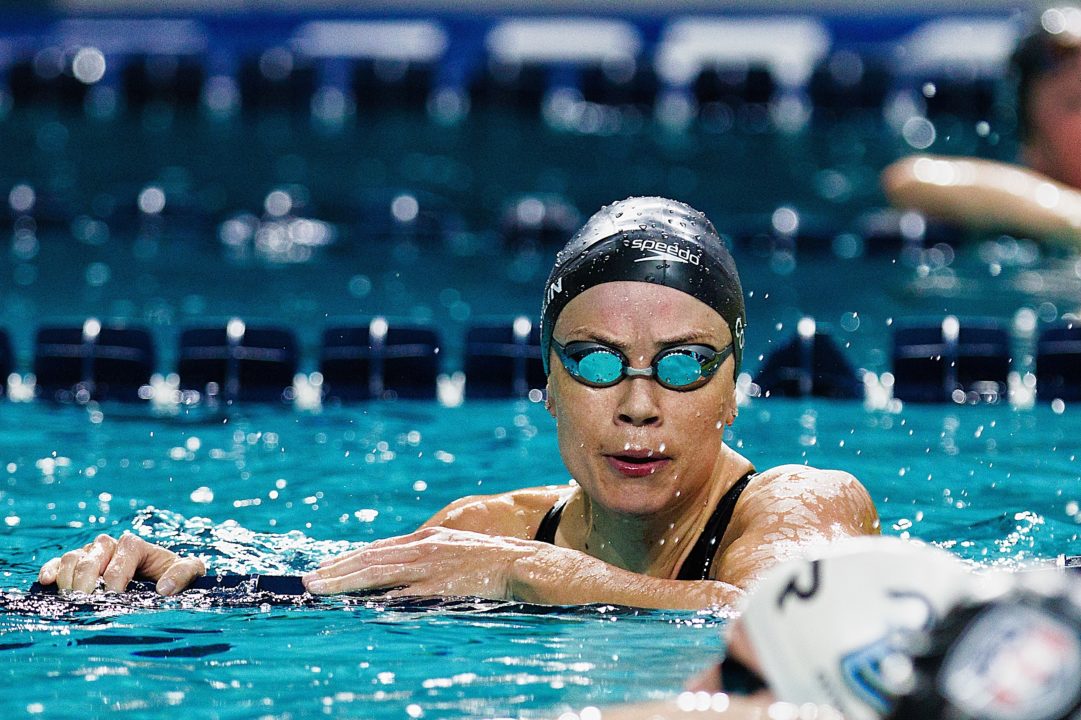This bad boy appeared originally at YourSwimBook.com. You can join Olivier’s weekly motivational newsletter for competitive swimmers by clicking here.
You know the feeling…
You’ll be truckin’ along, crushing swim practices, beating those main sets as if they stole your lunch money until it happens…
You fall ill. That chronic injury flares up during the biggest training week of the season. Or a combination of personal and social events combine to disrupt your practice schedule.
It’s frustrating.
And leaves you feeling more than a little irritated…
After all:
Once the injury/illness/drama passes, and you set back to training at full speed, you feel like you are playing catch-up, starting from scratch, having missed out on some glorious opportunities for improvement.
But those setbacks don’t have to be so crushing.
Here are a few powerful ways that you can get ahead of those training setbacks before they happen:
Revisit your training history.
Odds are pretty good that your training habits are remarkably consistent not only in the context of a single workout, but also over the course of a training cycle or season.
I saw it often, and experienced it as well:
- The swimmer who would have a couple great swim workouts, and then sandbag the following one.
- The athlete who could never complete a full week of training.
- The swimmer who always got sick in the middle of hard training phases.
- The guy or gal who got overwhelmed when exams came around, leading them to miss workouts.
- And so on.
From cycle to cycle, season to season, these hangups were consistent with the swimmers I observed and trained with (and myself in the case of getting ill in the midst of difficult training).
While it is understandable that we perpetually want to be looking forward, to making ourselves better as we move onwards, it is important to understand where we are starting from as well.
Those who cannot remember the past are condemned to repeat it. – George Santayana
Plan for heavy training.
The load that swimmers carry is no joke.
Two-a-days, an 11 month season, and more travel than you can shake a kickboard at. And this is on top of school, work, and any other commitments you manage to squeeze in to your 24 hour day.
The totality of all the hard work can leave you vulnerable, particularly during the colder months of the year. A study done on French top-level nageurs saw an increase of 50-70% in illness among swimmers during heavy bouts of training, with a marked uptick during the winter months.
Knowing you are susceptible during the holiday training season, are you going to go with the “train and hope” approach of relying on luck to get you through unscathed?
Or will you plan ahead by going to sleep early, staying on top of your nutrition, and making sure you are recovering to the fullest between workouts?
Similarly, those blocks of time in the school year where you are getting hammered with assignments and tests aren’t typically a surprise. Will you go play it day-by-day and hope that you are able to find the time to both study and training? Or will you plan for those periods of time when your time is at a premium by preparing and studying in advance?
If you are unsure about the “sticky” points of the season where most swimmers tend to fall off or experience difficulty staying on track with the training regimen sit down with your coach and have an honest conversation about what you can do to prepare for those trying moments.
Log your workouts.
The best way to understand how fast you progress, and what kind of results you can expect with specific levels of consistency and effort is to keep a training log.
You can spend your time asking your coach and teammates what is possible, and daydream about all the gains you will make in the pool when you totally and utterly commit yourself to the day-to-day grind, but until you put together a complete bird’s eye view of your training, you will be operating mostly in the dark.
The reality is this:
As athletes we tend to lack self-awareness.
We over-exaggerate our setbacks, and underestimate the work we do in the pool. Or vice versa.
The only way to truly know what to expect of ourselves—and better plan for the future—is to sit down and spend time monitoring our progress in the pool.
Ready to Take Your Swimming to the Next Level?
 YourSwimBook is a log book and goal setting guide designed specifically for competitive swimmers. It includes a ten month log book, comprehensive goal setting section, monthly evaluations to be filled out with your coach, and more.
YourSwimBook is a log book and goal setting guide designed specifically for competitive swimmers. It includes a ten month log book, comprehensive goal setting section, monthly evaluations to be filled out with your coach, and more.
Learn 8 more reasons why this tool kicks butt now.
Join the YourSwimBook weekly newsletter group and get motivational tips and more straight to your inbox. Sign up for free here.
